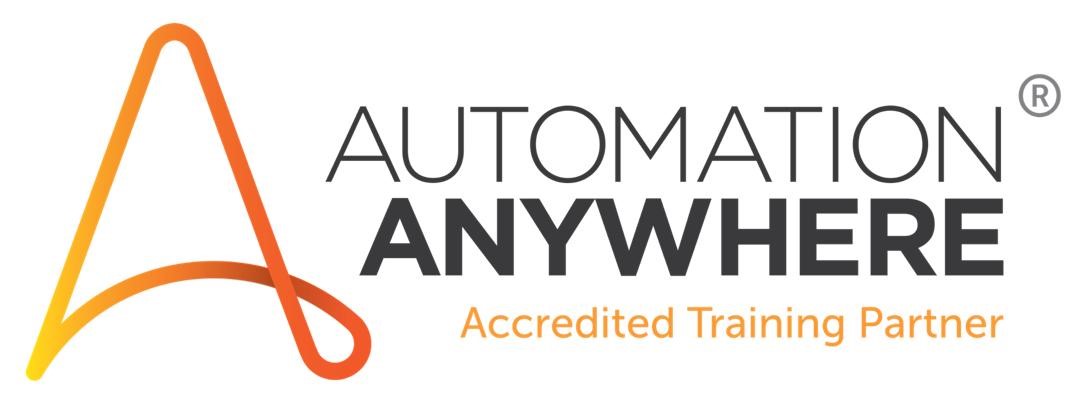

What is Robotic Process Automation (RPA)?
RPA is an advanced form of business process automation that is able to record tasks performed by a human on their computer, then perform those same tasks without human intervention . It refers to software that can be easily programmed to do basic, repetitive tasks across applications. RPA creates and deploys a software robot with the ability to launch and operate other software. Our people can then be upskilled in areas that is strategic or meaningful instead of performing mundane and repetitive tasks.
RPA is an application of technology, governed by business logic and structured inputs, aimed at automating business processes. Using RPA tools, a company can configure software, or a “robot,” to capture and interpret applications for processing a transaction, manipulating data, triggering responses and communicating with other digital systems. RPA scenarios range from something as simple as generating an automatic response to an email to deploying thousands of bots, each programmed to automate jobs in an ERP system.
RPA adoption is considered to facilitate business processes without increasing headcount or costs in various sectors i.e financial services, healthcare, retail and human resources, showing the breadth of RPA use today.
What are the benefits of RPA?
We now know that, Robotic process automation (RPA) can augment repetitive, mundane, and error prone clerical task which leads to organisations being able to reduce staffing costs and human error.
For many companies, RPA is a game changer; saving them time and money on repetitive manual tasks. From attended automation, where your human workforce uses RPA to accelerate work, to unattended and hybrid human/robot RPA, robotic process automation offers a real-world solution to a real-world problem.
A Case Study: Deloitte LP
David Schatsky, a managing director at Deloitte LP, points to a bank’s experience with implementing RPA, in which the bank redesigned its claims process by deploying 85 bots to run 13 processes, handling 1.5 million requests per year. The bank added capacity equivalent to more than 200 full-time employees at approximately 30 percent of the cost of recruiting more staff, Schatsky says.
Bots are typically low-cost and easy to implement, requiring no custom software or deep systems integration. Schatsky says such characteristics are crucial as organizations pursue growth without adding significant expenditures or friction among workers. "Companies are trying to get some breathing room so they can serve their business better by automating the low-value tasks," Schatsky says.
Enterprises can also supercharge their automation efforts by injecting RPA with cognitive technologies such as ML, speech recognition, and natural language processing, automating higher-order tasks that in the past required the perceptual and judgment capabilities of humans.
By 2020, automation and artificial intelligence will reduce employee requirements in business shared-service centers by 65 percent, according to Gartner, which says the RPA market will top $1 billion by 2020. By that time, 40 percent of large enterprises will have adopted an RPA software tool, up from less than 10 percent today.
Here are some of the many benefits:
1. Cost savings:
• Reduce operating costs and increase throughput.
2. Significant process improvements:
• Get more done in less time.
• Add/change processes as needed
3. Redeployment of resources to higher value functions:
• Allow employees to offload tasks to robots so people can focus on the customer and the task at hand.
4. Improved productivity:
• Minimize manual, error-prone processes.
• Expand virtual workforce quickly and easily.
5. Improved quality:
• Increase compliance and auditability.
• Increase consistency with standardized processes.
6. Improved customer service:
• Eliminate human errors to improve customer satisfaction.
7. Improved compliance:
• All RPA steps are recorded for historical auditability.
Another major benefit of RPA is that it offers a non-invasive alternative to traditional IT integration. Self-contained agents gather and update information in other apps, automating against their existing interfaces. RPA can be used across all industries, from financial services, retail, energy, utilities, telecoms and manufacturing. It is flexible and scalable. Analysts forecast that in as few as three years RPA will be a $1 billion market with 40% of large global organizations using it to automate work activities.
The right RPA platform will get you to the right place at the right time, so you can start realizing all-important ROI. If you are ready to talk to the leader of the pack, Software AG, please click below.
For a deeper look at the benefits of RPA, see “Why bots are poised to disrupt the enterprise” and “Robotic process automation is a killer app for cognitive computing.”
Source: https://www.cio.com/article/3236451/what-is-rpa-robotic-process-automation-explained.html
About AUTOMATION ANYWHERE

Automation Anywhere is a global leader in Robotic Process Automation (RPA), empowering customers to automate end-to-end business processes with software bots – digital workers that perform repetitive and manual tasks, resulting in dramatic productivity gains, improved customer experience and more engaged employees. The company offers the world’s only web-based and cloud native intelligent automation platform combining RPA, artificial intelligence, machine learning and analytics right out of the box, to help organizations rapidly start and scale their process automation journey. With offices in more than 40 countries and a global network of 1,200 partners, Automation Anywhere has deployed over 1.8 million bots to support some of the world’s largest enterprises across all industries. For additional information, visit www.automationanywhere.com.
Our RPA Programs include the following:-
Training Programs
• A Beginners Guide to Robotic Process Automation
• Mastering Bots: Design and Build an Advanced Digital Workforce (Enterprise A2019)
• Mastering Bots: Design and Build an Advanced Digital Workforce (V11)
• IQ Bot Essentials Training
• Mastering Bots & IQ Bots Essentials
• Solution Architect Training Bot Trainer Bootcamp: Learn How to Create and Deliver RPA Training’
Certification Programs
• Automation Anywhere Certified Advanced RPA Professional (V11)
• Automation Anywhere Certified Advanced RPA Professional (Enterprise A2019)
• Automation Anywhere Certified Master RPA Professional (V11)

